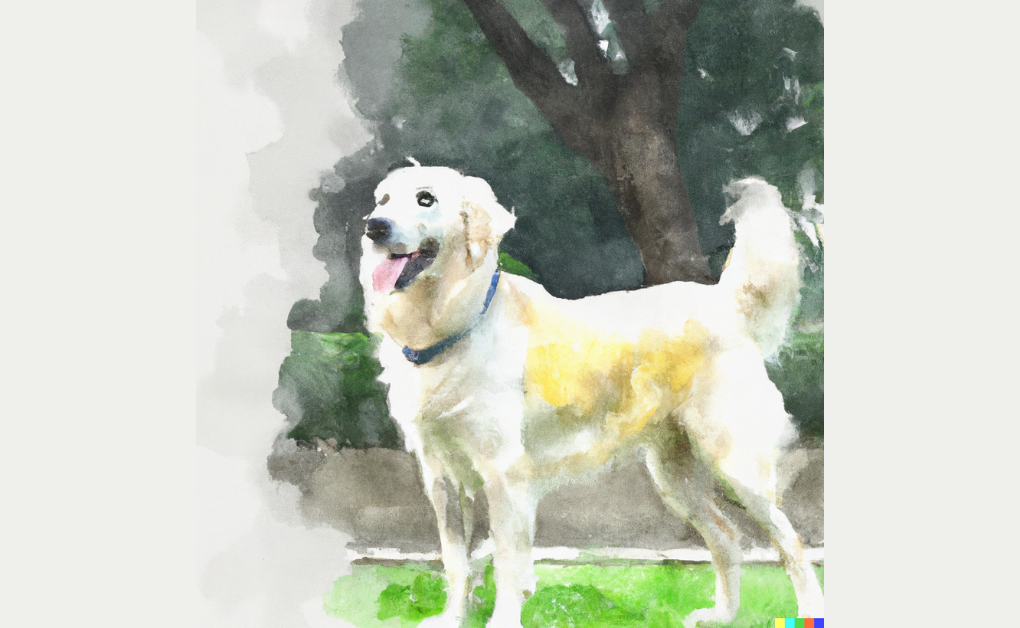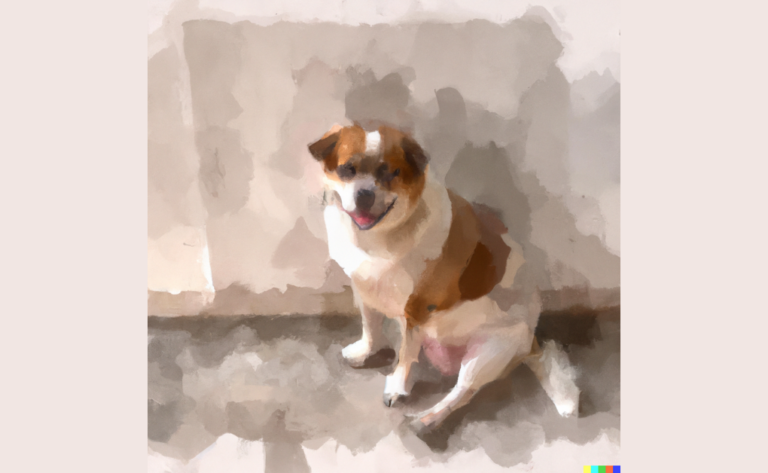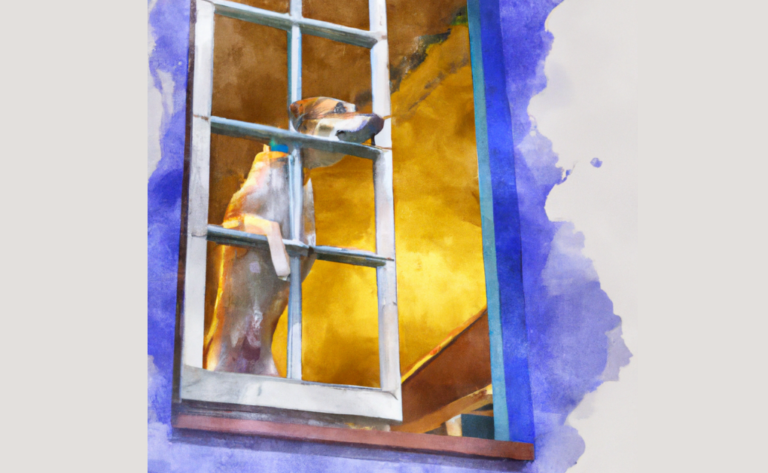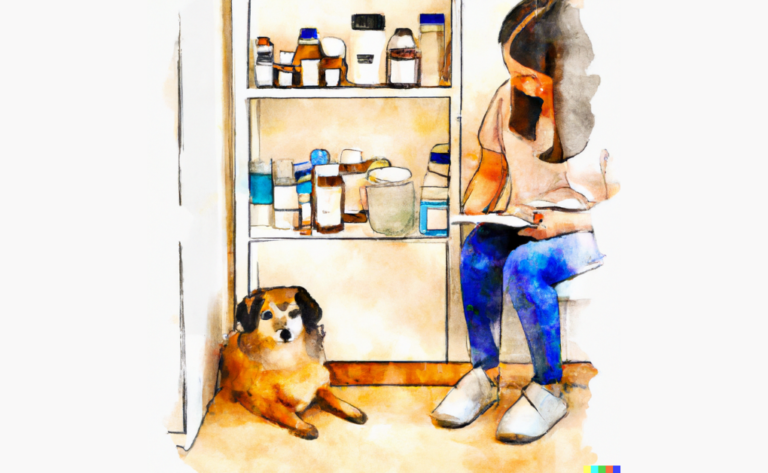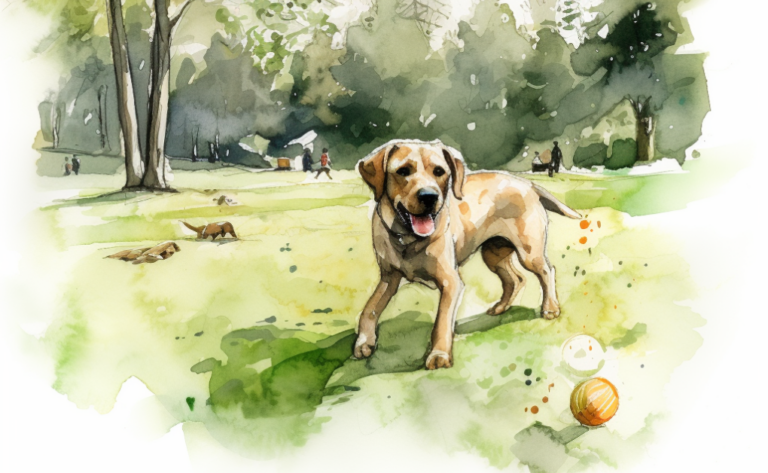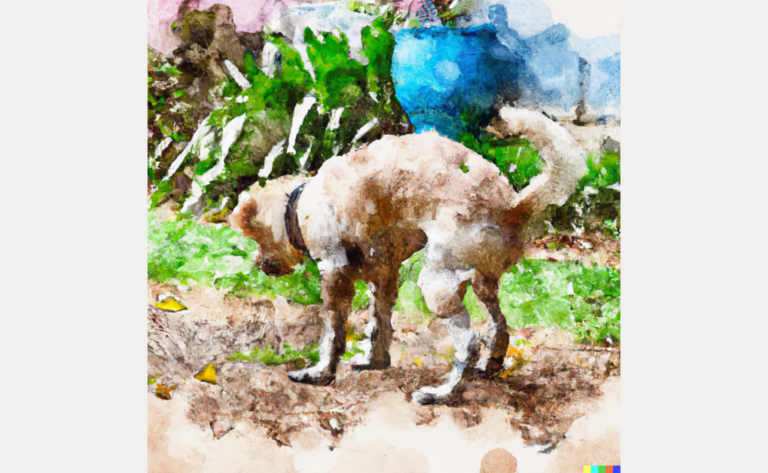When is Dog Panting Abnormal?
Introduction
Emily sat on her porch, enjoying the warm summer afternoon with her Labrador Retriever, Charlie. As the minutes ticked by, she noticed that Charlie’s panting grew heavier and more prolonged than usual. Concerned about her beloved companion, Emily began to wonder whether this could be a sign of something more severe.
Dogs often suffer from heavy panting due to allergies, heat exhaustion, overheating, or stress. The most common cause of excessive panting is heat exhaustion. This happens when dogs overheat because they’re not drinking enough water. So how will you know if dog panting is expected, and when should you see a vet?
Listen to the Changes in Your Dog’s Breathing Sound
When dogs pant, it sounds like a whistle. But what happens when you hear a different noise from your dog’s mouth? If you hear something else, there could be a problem.
The most common cause of abnormal breathing patterns in dogs is laryngeal paralysis. This occurs when nerve fibers are damaged during birth, causing the muscles around the airway to stop working correctly. When this happens, the airways become blocked, and the animal whistles when he breathes.
Contact your veterinarian immediately if you notice a change in your dog’s breathing pattern, such as a whistling sound. He’ll perform a physical exam to determine whether your pet has laryngeal paralysis and needs treatment.
When to Call Your Vet?
If you are unsure whether your dog needs medical attention, it is best to contact your veterinarian immediately. If you do not know how to reach your vet, there are several ways to find out. You could ask your local animal shelter or humane society or look up your phone number online. Many veterinary clinics are listed on the internet, including those on Petfinder.com.
While you wait for your vet to return your call, here are some things you can do to help keep your pet healthy. First, make sure your dog always has access to clean drinking water. This includes bowls, dishes, and kennels. Second, make sure your dog gets plenty of exercises.
Walking around the neighborhood or playing fetch with his favorite toy are great options. Lastly, make sure your dog receives regular checkups. These visits allow your vet to monitor your pet’s health and ensure he does not develop any problems.
Normal Panting in Dogs
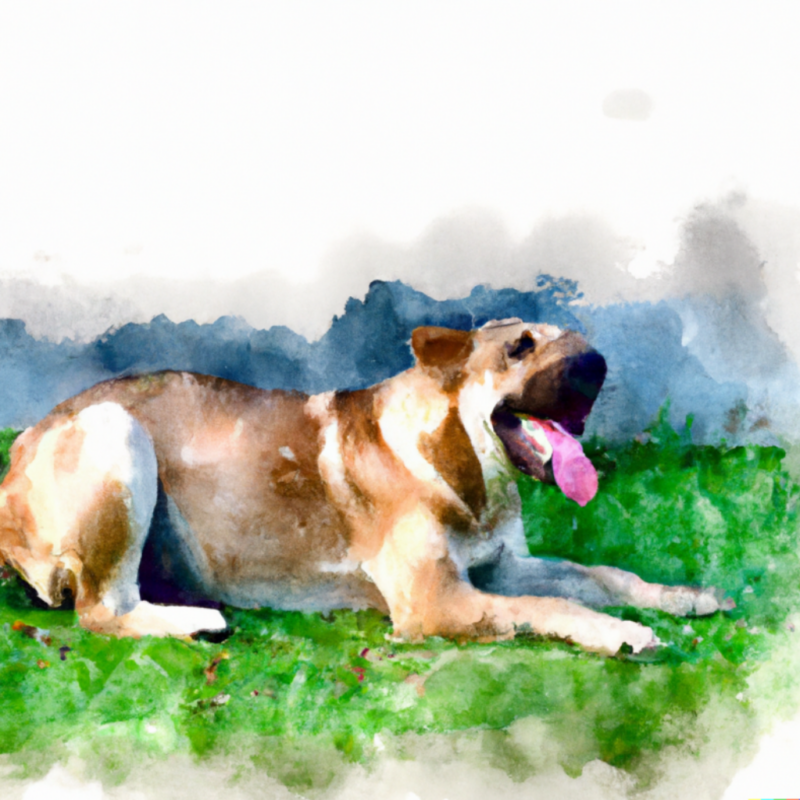
Panting is a natural reflex of breathing in animals. It occurs when air enters the lungs through the nose and mouth at a rate faster than the amount of oxygen entering the bloodstream. The excess air is then expelled from the body through the mouth. This process helps maintain blood pressure and keep the respiratory system working properly. Panting is usually accompanied by increased heart rate and muscle activity.
The amount of air flowing into the lungs depends on how much oxygen there is. The average rate of breath in dogs is 30 to 40 breaths per minute, based on Vetstreet. If you want to know if your dog’s breathing is normal, look at him carefully. You should see him take regular breaths. He shouldn’t breathe too fast or too slow. Also, make sure that he doesn’t hold his breath. If he has his breath, this could mean something is wrong with his lungs.
Typical Causes of Heavy Breathing
Panting is normal behavior in dogs. However, when panting becomes excessive, it may signify illness or injury. For example, dogs often pant because they’re hot or cold. They may pant because they’re excited or anxious. And sometimes, panting is just a natural response to exercise. But there are some common causes of excessive panting in dogs. These include overheating, pain, and obesity.
- Overheat
The most common cause of panting in dogs is overheating. Dogs pant because they feel hot and want to cool down. As a result, they often pant while running around outside or playing. If your dog is panting excessively, you should take him inside immediately and give him some water. You can also give him ice cubes wrapped in a towel.
- Airway Pressure
Normal panting in dogs is when your dog breathes out through its nose while lying down. This is a natural behavior of dogs. It is usually done during sleep or rest. This happens because the air pressure inside the lungs decreases due to the relaxation of muscles. When the air pressure inside the lung drops below the atmospheric pressure outside, the air rushes into the lungs from the mouth and nose. In this way, the air pressure inside the body increases again.
- Excitement
If your dog is panting due to excitement, he might be nervous or anxious. On the other hand, he could feel stressed or excited about something. Try distracting him with food, treats, or toys.
A dog’s excitement level depends on many factors, including age, breed, training, environment, and even health issues. Therefore, a dog’s excitement level can range from excited to excited.
A dog’s panting is an integral part of his communication. If you want to know what your dog is feeling, look at how fast he panted. Panting is a sign of excitement.
If you notice your dog whining, it could mean he’s bored or frustrated. Boredom causes stress, and stress makes him feel anxious. So when a dog feels stressed, he’ll start whining.
- Pain
Many people think dogs don’t feel pain, but it turns out that they do. Many animals experience pain just like humans do. They even use similar methods to cope with it. But what exactly does “pain” mean? And how do you know if your dog is experiencing it?
How do you tell if your dog is feeling pain? You can observe his behavior. If he seems uncomfortable, he might start scratching himself or licking his paws. He might also try to avoid certain situations.
If your dog starts acting differently, it’s essential to take him to the vet immediately. A veterinarian can help determine whether your dog is experiencing pain and treat it accordingly.
- Obesity
Panting is a symptom of obesity. Obesity causes dogs to pant because their bodies need the energy to burn fat. The excess weight makes them work harder than normal dogs, causing them to breathe faster and take in more oxygen. As a result, he may not be able to cool himself properly. He may need to drink more water than usual, eat more food, or exercise more frequently.
- Exercise
Exercise is a great place to start if you’re looking for ways to keep your dog healthy and happy. Exercise helps dogs stay fit, strong, and mentally alert. And when your dog is active, he doesn’t pant.
Panting occurs when your dog breathes faster than usual. This happens because his lungs fill with air too quickly. The result is extra oxygen entering his bloodstream, causing him to breathe harder.
When your dog pants, he may try to cool down after exercising. Or he may be experiencing heat exhaustion. Heat exhaustion causes excessive sweating, weakness, dizziness, headache, nausea, vomiting, and fainting.
To prevent panting, take your dog out for walks during cooler weather. Also, try giving him water frequently throughout the day. Make sure he drinks at least 1/2 cup every hour.
And remember, never leave your dog alone in hot cars. He can die within minutes.
Abnormal Panting in Dogs
Heavy panting is a symptom that occurs when a dog suffers from several different medical conditions. In some cases, it may indicate a severe problem such as heart disease or kidney problems, while in others, it may simply mean that the pet is uncomfortable or stressed out. Regardless of the reason behind the excessive panting, there are ways to help relieve the symptoms.
Causes of Abnormal Panting
The most common cause of heavy panting is a respiratory illness. This includes infections like pneumonia and bronchitis, allergies, and asthma. These diseases often lead to coughing, sneezing, wheezing, and even shortness of breath. If you notice your dog panting heavily during episodes of these types of illnesses, ensure he gets plenty of rest and fluids.
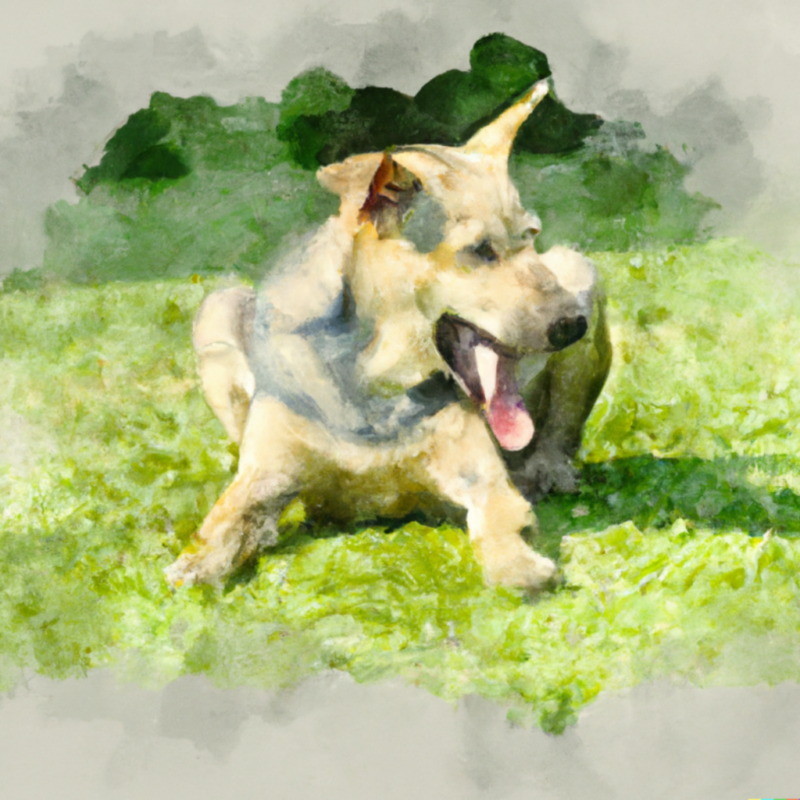
- Heatstroke
Heatstroke is an emergency where your dog’s body temperature rises above 104 degrees Fahrenheit. This happens because his blood vessels constrict, and he loses heat faster than usual. As a result, he becomes weak and confused. If you notice signs of heatstroke in your dog, take action immediately.
Heatstroke often occurs in young puppies who run around outside in extreme temperatures. The puppy’s body doesn’t have enough sweat glands yet, so he sweats very little. As a result, he may not realize he’s overheated until he starts panting heavily.
Cooling your dog will reduce his chances of dying. You can do this by placing him under cold running water. Never put ice directly into your dog’s mouth. Instead, place it inside a bowl and let him lick it off. Also, make sure your dog always has fresh water available.
- Hyperthyroidism
Another possible cause of heavy panting in pets is hyperthyroidism. This disorder affects the thyroid gland, causing it to produce too much hormone. As a result, the body has excess amounts of adrenaline, which leads to increased blood flow throughout the body, including the lungs. When this happens, the animal may become overheated and experience rapid heartbeat, sweating, and panting. Hyperthyroidism usually requires medication to treat, although sometimes surgery is needed.
- Cushing’s Syndrome
Cushing’s syndrome is another condition that can cause heavy panting. Cushing’s syndrome is caused by high levels of cortisol (a hormone produced by the adrenal glands) in the bloodstream. High levels of cortisol can affect breathing, leading to panting.
Panting is also a symptom of diabetes mellitus. Diabetes causes the pancreas to stop producing insulin, which is needed for proper digestion. Without insulin, sugar
- Allergies
To determine whether your dog suffers from allergies, take note of any symptoms. These include sneezing, runny nose, watery eyes, itching ears, scratching, vomiting, diarrhea, coughing, wheezing, and difficulty breathing.
If your dog shows these signs, consult your veterinarian. He may recommend a blood test to confirm the presence of allergens.
- Hypoglycemia
Dog hypoglycemia occurs when a dog experiences low blood glucose levels. This condition usually results in excessive breathing, rapid heart rate, tremors, seizures, and coma. The most common cause of this condition is not eating enough food.
If your dog does not eat enough food, he may experience hypoglycemia. Hypoglycemia can be treated with oral medications, intravenous fluids, and insulin injections. However, if left untreated, hypoglycemia can lead to death.
- Medicine
Panting is normal behavior for most dogs. However, some medications can cause excessive panting in dogs. These include antihistamines (such as Benadryl), antipsychotics (like Risperdal), and anticonvulsants (like Phenobarbital).
If your dog starts panting excessively after taking any of these medicines, contact your veterinarian immediately. He may need to adjust his dosage or switch to another medication.
Dogs often suffer from heavy panting due to allergies, heat exhaustion, overheating, or stress. The most common cause of excessive panting is heat exhaustion. This happens when dogs overheat because they’re not drinking enough water. So how will you know if dog panting is expected, and when should you see a vet?
Frequently Asked Questions
Disclaimer: The information provided on this veterinary website is intended for general educational purposes only and should not be considered as a substitute for professional veterinary advice, diagnosis, or treatment. Always consult a licensed veterinarian for any concerns or questions regarding the health and well-being of your pet. This website does not claim to cover every possible situation or provide exhaustive knowledge on the subjects presented. The owners and contributors of this website are not responsible for any harm or loss that may result from the use or misuse of the information provided herein.

